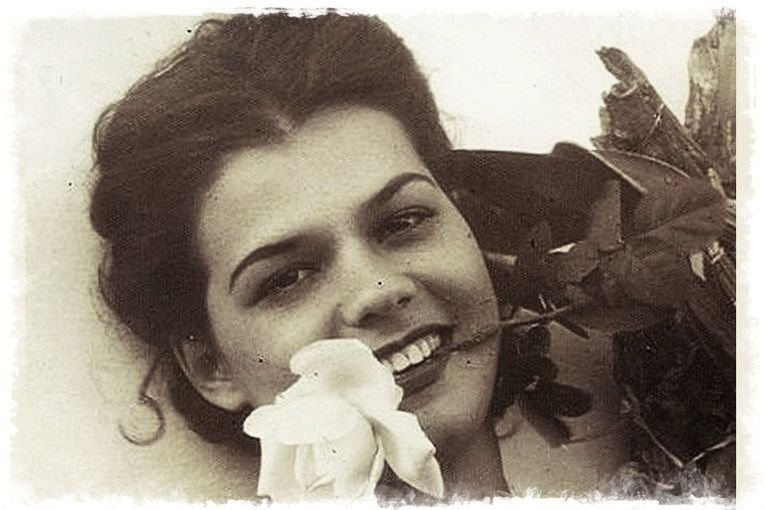
Photo: Fuente
On May 4, 2009, the 105th anniversary of the birth of the Venezuelan poet Ana Enriqueta Terán, who lived her last years in Valencia, was commemorated.
In 2009 a single issue of the newspaper Estación Sur was published, an initiative of Laura Antillano, Jesús Puerta, Francisco Ardiles, Orlando Zabaleta, María Narea, Pedro Téllez, Gustavo Fernández Colón and Victorino Muñoz. I was invited to participate in the page memoria en uso. There I published a biographical sketch of my days with Ana Enriqueta Terán. In honor of her centennial, I would like to share part of that text in this issue:
El pasado 4 de mayo se conmemoraron 105 años del nacimiento de la poeta venezolana Ana Enriqueta Terán quien vivió sus últimos años en Valencia.
En año 2009 se editó el único número del periódico "Estación Sur" una iniciativa de Laura Antillano, Jesús Puerta, Francisco Ardiles, Orlando Zabaleta, María Narea, Pedro Téllez, Gustavo Fernández Colón y Victorino Muñoz. A la que fui invitada a participar en la página memoria en uso. Allí publiqué una semblanza sobre mis días al lado de Ana Enriqueta Terán. En honor a su centenario, quisiera compartir en esta entrega parte de ese texto.

Photo:Fuente
I begin this semblance of friendship and affection for the poet Ana Enriqueta Terán with some words that she pronounced in Valera some years ago on the occasion of an act in her homage:
"I was born in Valera, in the then Santa Elena sugar cane plantation on May 4, 1918. I have traveled through a very extensive and civilized part of the world, but my heart has been faithful to my native province. Whoever seeks identity will find it mainly in places of childhood. That is my case, and I offer to those who listen to me, especially to young people, images of another more innocent reality, when valleys, rivers and mountains remained uncontaminated ... also two requests, the first, love for Venezuela, a nation so little loved. The second, love for the trades. May the austere tenderness of a craft flourish alongside the advances in technology, science and the arts".
Comienzo esta semblanza sobre la amistad y el afecto para la poeta Ana Enriqueta Terán con unas palabras que pronunció en Valera hace algunos años con motivo de un acto en su homenaje:
"Nací en Valera, en la entonces hacienda de caña Santa Elena un 4 de mayo de 1918. He recorrido parte muy extensa y civilizada del mundo, pero mi corazón ha sido fiel a mi provincia natal. Quien busca identidad la encontrará principalmente en lugares de la infancia. Ese es mi caso, y le ofrezco a los que me escuchan , en especial, a los jóvenes, imágenes contiguas a otra más inocente realidad, cuando valles, ríos y montañas permanecían no contaminados … también dos peticiones, la primera, amor por Venezuela, nación tan poco amada. El segundo amor por los oficios. Que al lado de los avances de la técnica, las ciencias, las artes, florezca la austera ternura de un oficio".
I arrived at TEA's house in March 2006, through the poet Juan Calzadilla who requested my collaboration to recover an important number of manuscripts kept since 1952, during countless moves. Some of them were written in Paris, others during his diplomatic life and that due to age limitations could not be transcribed. Unpublished texts signed in Montevideo, Guacuco, Paris and Jajó. Her husband José María Beotegui went ahead in the work of ordering and saving part of the work, a work that facilitated its definitive recovery.
At the beginning it was difficult because I did not know the classical forms and she was demanding. She dictated each verse to me and became impatient if I made a mistake: "Listen, listen and learn, you have to educate your ear. I am teaching her so don't get angry".
Llegué a casa de TEA en marzo del 2006, a través del poeta Juan Calzadilla quien solicitó mi colaboración para recuperar un importante número de manuscritos guardados desde 1952, durante innumerables mudanzas. Algunos escritos en Paris, otros durante su vida diplomática y que por limitaciones de edad no podían transcribirlos. Textos inéditos firmados en Montevideo, Guacuco, Paris y Jajó. Su esposo José María Beotegui se adelantó en la labor de ordenar y guardar parte de la obra, trabajo que facilitó su definitiva recuperación.
Al principio fue difícil porque yo no conocía las formas clásicas y ella era exigente. Me dictaba cada verso y se ponía impaciente si me equivocaba: "Escuche, escuche y aprenda, tiene que educar el oído. Yo la estoy enseñando así que no se ponga brava".
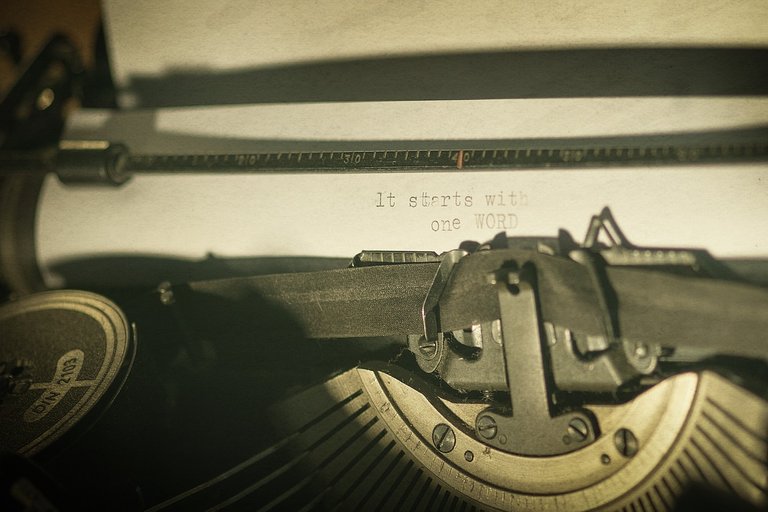
Photo: Fuente
Visitors came to his residence: poets, painters, friends, and that was a reason to celebrate. He would dress up and receive them in his red armchair. His house became the athenaeum of his childhood. Many times these visits came on the occasion of some literary meeting held in the city, but the concurrence extended to his house. The conversations were always about poets, books or became recitals of Ana Enriqueta, brief interviews. Always full of joy these visits would leave, but not without leaving their presence in the notebook, stamped by the calligraphy of the great voices of Venezuelan literature that visited her house in those days.
Sometimes the house was silent and little was encouraged to write. He ordered me to print the copies and corrected them as many times as possible, until they were impeccable. He would talk to me about some poet or about his diplomatic life. His memory seemed impatient to recover that past. Sometimes he would remain silent and change the subject and return to talk about Latin American authors.
A su residencia llegaban visitas: poetas, pintores, amistades y eso era un motivo de celebración. Se arreglaba y los recibía en su sillón rojo. Su casa se convertía en el ateneo que fue la de su infancia. Muchas veces estas visitas venían con motivo de algún encuentro literario celebrado en la ciudad, empero la concurrencia se extendía hasta su casa. Las conversaciones siempre eran sobre poetas, libros o se convertían en recitales de Ana Enriqueta, breves entrevistas. Siempre llenos de alegría estas visitas se marchaban no si dejar su presencia en el libro de notas, estampado por la caligrafía de las grandes voces de la literatura venezolana que visitaron su casa, por aquellos días.
Algunas veces la casa era silenciosa y poco se animaba a escribir. Me ordenaba imprimir las copias y las corregía tantas veces fuera posible, hasta dejarlas impecables. Me hablaba de algún poeta o de su vida diplomática. Su memoria parecía impaciente por recuperar aquel pasado. A veces se quedaba en silencio y cambiaba el tema y volvía hablar de autores latinoamericanos.
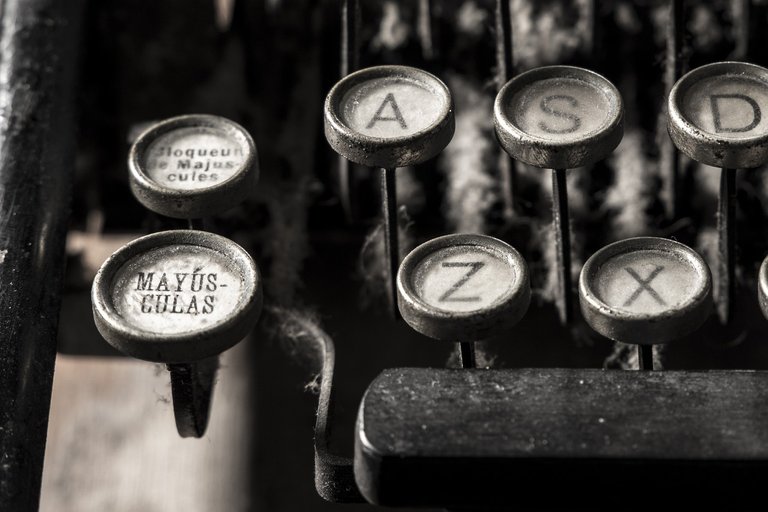
Photo:Fuente
When she didn't want to write, she would tell me today we are going to play with dolls. She took out threads, needles and made little costumes to dress her dolls. Dolls that at one time were dressed as angels in the Andean nativity scene that was set up in the hallway of her house.
Naked and lined up, she would put them in a row to take tiny measurements that she would later transform into hats, dresses, shoes and shirts. Other times we would take out a wooden trunk full of costume jewelry and she would make exclusive pieces to wear.
In her house there was a sewing workshop that she seldom frequented so as not to be confronted with memories. Under lock and key were the machines of the women of Jajó, the place where she founded her dressmaking and sewing workshop. There she made pieces that were sold in the showcases of Paris made by women from Trujillo who went to the workshop.
Cuando no quería escribir me decía hoy vamos a jugar muñecas. Sacaba hilos, agujas y confeccionaba pequeños trajes para vestir a sus muñecas. Muñecas que en una época se vestían de ángeles en el nacimiento andino que se armaba en el corredor de su casa.
Desnudas y en fila las ponía para tomarle diminutas medidas que después transformaba en sombreros, vestidos, zapatos y camisas. Otras veces sacábamos un baúl de madera lleno de bisutería y hacía piezas exclusivas para vestirse.
En su casa había un taller de costura que poco frecuentaba para no encontrarse con los recuerdos. Bajo llave permanecían las máquinas de las mujeres de Jajó, lugar donde fundó su taller de confección y costura. Allí se confeccionaban piezas que eran vendidas en las vitrinas de Paris hechas por mujeres trujillanas que iban al taller.
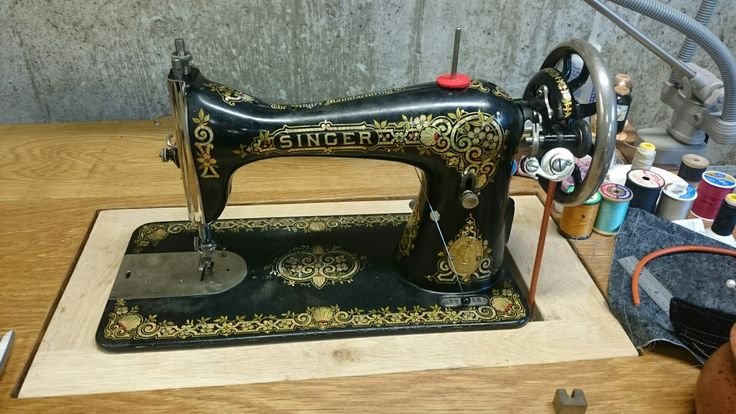
Photo:Fuente
TEA learned to sew at home, home of crafts. She pays tribute to this work in her book: Libro de los oficios published in 1975.
The poet's life was closely linked to her daily life. For this reason in her house there were no libraries, no special rooms for reading; her house was a large library. In every place there was a space to keep books, including the closets, the sewing room and the laundry room.
TEA was a housewife who wrote her poetry under the daily rhythm of the offices. Her conception of the domestic surpassed the conservative view of not qualifying it as work, she, on the contrary, blessed it as a temple. That arrangement of the intimate space was also that of her poetry. She assumes the nature of being a woman as a fertile womb. The house represents the roots of a people, the spirit that moves it and gives meaning to its existence. That is why she was always faithful to the defense of the South; the South kept in the warm memory of her diplomatic life in Argentina and Uruguay, reaffirmed in the voices of writers such as: Undurraga, Miguel Angel Asturias and Juana de Ibarbouru with whom she strengthened ties of friendship. Bonds of the big house united in the South, the great indestructible maternal womb.
TEA aprendió a coser en casa, casa de los oficios. Labores a las que rinde honores en su libro: Libro de los oficios publicado en 1975.
La vida de la poeta estaba estrechamente ligada a su vida cotidiana. Por tal razón en su casa no había bibliotecas, ni salones especiales para leer; su casa era una gran biblioteca. En cada lugar había un espacio para guardar libros, incluyendo los clósets, el salón de costura y el lavandero.
TEA era una ama de casa que escribió su poesía bajo el ritmo cotidiano de los oficios. Su concepción de lo doméstico superaba la visión conservadora de no calificarla como trabajo, ella, por el contrario, lo bendijo como un templo. Ese arreglo del espacio íntimo también era el de su poesía. Asume la naturaleza de ser mujer como vientre fértil. La casa representa el arraigo de un pueblo, el espíritu que lo mueve y le da sentido a su existencia. Por eso siempre fue fiel a la defensa del Sur; el Sur guardado en el cálido recuerdo de su vida diplomática en Argentina y Uruguay, reafirmado en las voces de escritores como: Undurraga, Miguel Ángel Asturias y Juana de Ibarbouru con quienes estrechó lazos de amistad. Lazos de la casa grande unidos en el Sur, el gran vientre materno indestructible.
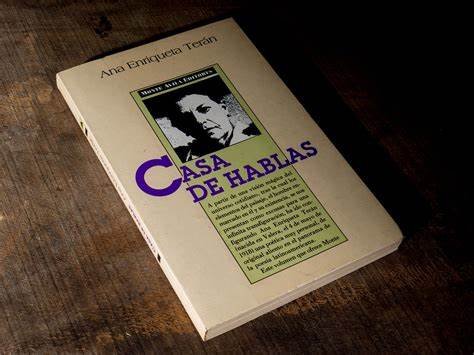
Photo: Fuente
Congratulations @vielsiarias! You have completed the following achievement on the Hive blockchain And have been rewarded with New badge(s)
Your next target is to reach 3000 upvotes.
You can view your badges on your board and compare yourself to others in the Ranking
If you no longer want to receive notifications, reply to this comment with the word
STOPCheck out our last posts:
Support the HiveBuzz project. Vote for our proposal!
Muy afectuosa semblanza de la poeta Ana Enriqueta Terán. Yo tuve la dicha de visitarla en su casa de Jajó; eso sería en los primeros años de la década del 90 aproximadamente, cuando con mi novia de entonces y dos amigos vecinos viajamos a Mérida y Trujillo, y propuse que la visitáramos. Lamentablemente, para ese tiempo no tenía cámara fotográfica y menos celular. Ella, encantadora, nos recibió con mucho cariño y amabilidad, y nos atendió muy emocionada, pues cuando niña había visitado Cumaná y recordaba la majestad del mar. Conservó una plaquette que nos regaló con poemas de su libro De bosque a bosque. Gracias y saludos, @vielsiarias.
Esta publicación ha recibido el voto de Literatos, la comunidad de literatura en español en Hive y ha sido compartido en el blog de nuestra cuenta.
¿Quieres contribuir a engrandecer este proyecto? ¡Haz clic aquí y entérate cómo!